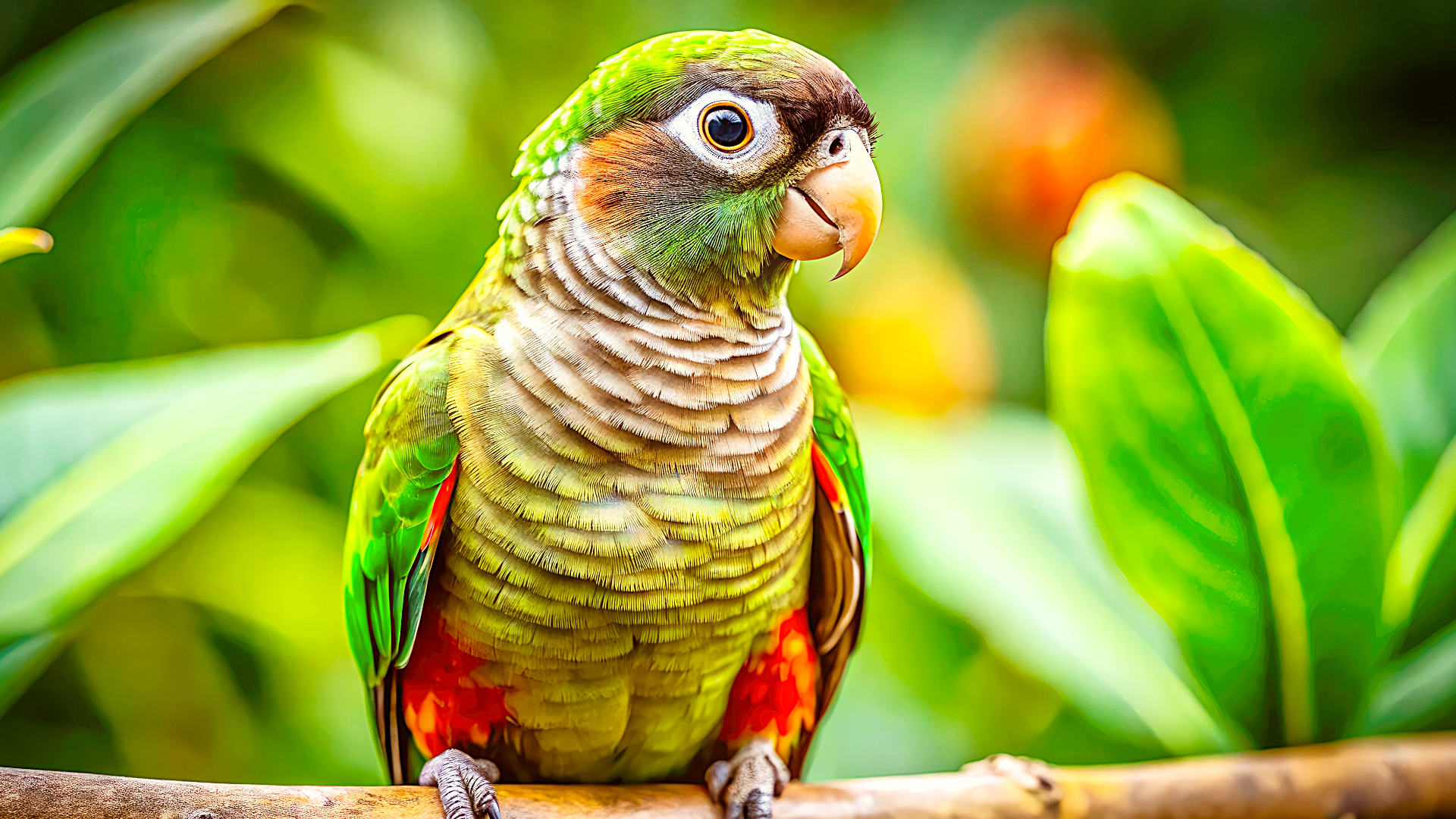Caring for your Green-Cheeked Conure
Green-Cheeked Conure
(Pyrrhura molinae)
Basic Information:
Green-cheeked conures are small, intelligent parrots native to the forests of South America, particularly Brazil, Bolivia, Argentina, and Paraguay. Known for their playful antics, quiet vocalizations (compared to other conures), and affectionate personalities, they are highly social birds that thrive on daily interaction. Their plumage includes vibrant green bodies, maroon tails, and a signature dark patch on the cheeks.
Lifespan:
20–30 years in captivity with excellent care.
Sexing:
Green-cheeked conures are not sexually dimorphic; DNA testing is required to determine sex.
Enclosure:
Minimum Size: 24” x 24” x 30” cage with bar spacing of ½ inch or less
Horizontal space is crucial for movement; provide multiple natural wood perches, hanging toys, ladders, and swings.
Rotate toys and rearrange perches regularly to encourage mental stimulation and exercise.
Substrate:
Line the cage bottom with newspaper or paper towels and change daily. Clean perches, dishes, and cage surfaces weekly to prevent bacterial buildup.
Lighting & Temperature:
Maintain a consistent 12-hour light/dark cycle using natural daylight or full-spectrum avian lighting which helps support healthy circadian rhythms and vitamin D3 synthesis.
Keep room temperature between 65–80°F. Avoid drafts, direct air vents, and sudden temperature changes.
Humidity:
Maintain 40–60% humidity. Offer regular opportunities for bathing via shallow dishes, misting, or shower perches.
Food:
A healthy conure diet includes a high-quality pellet base (60–70% of their diet), supplemented with a variety of fresh fruits and vegetables, such as leafy greens, apples, carrots, and berries. Seeds and nuts can be offered occasionally as treats or training rewards but should not be a staple due to high fat content.
Avoid avocado, chocolate, caffeine, onions, and alcohol, as they are toxic to birds.
Socialization:
Green-cheeked conures require daily social interaction and out-of-cage time. They love training, games, and gentle handling. Foraging toys, puzzle feeders, and safe chew toys help prevent boredom and behavioral issues like feather plucking.
Affectionate, clever, and comically expressive, the green-cheeked conure makes an excellent companion for dedicated keepers willing to provide daily engagement and enrichment. Their small size, combined with their big personality, makes them a favorite among parrot enthusiasts.


